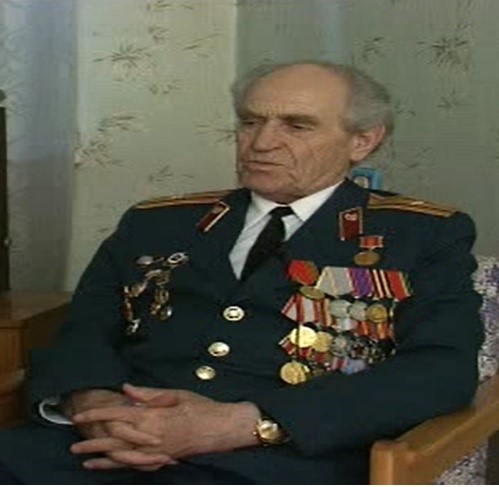Aleksei Nadel was born in 1924 in Lwów, Poland. His father Zygmunt (Sigmund) was a tailor, while his mother Zofia was a hairdresser. After Aleksei's birth, the family moved to Skalat, a town in the extreme southeast of Poland. In 1929, Zygmunt was killed in unclear circumstances. In 1936, Zofia Nadel, who was ill with tuberculosis, sent Aleksei and his younger brother Józef to an orphanage. In late 1939, after the Soviets had occupied southeastern Poland (in the aftermath of the Molotov-Ribbentrop Pact), they closed down the Jewish orphanage. Nadel finished a Polish school. In 1939-41, prior to the outbreak of the Soviet-German War, Aleksei lived in nearby Czortków. He began to attend a vocational school for furniture makers; he later moved to a different vocational school, which trained casters.
On June 22, 1941, the first day of the Soviet-German War, the whole vocational school was put on alert, and the long evacuation into the Soviet interior began. As a result, Nadel found himself in Saratov on the Lower Volga, where he worked at a ball bearings factory. In April 1942, after turning eighteen, Nadel volunteered to enlist in the Red Army. In late 1942, having undergone training at a military base in Tatishchevo, the Saratov Region, rifleman private Nadel was sent to fight in the Stalingrad operation. His unit had to hold the line in the area of Kotluban, northwest of the city of Stalingrad, where German tanks were advancing. Nadel was wounded and evacuated to a hospital in Saratov. After being discharged from the hospital in early 1943, Nadel was transferred to the 2nd Belorussian Front and attached to the 440th Rifle Regiment of the 64th Division. Initially, he served on the regimental staff, and was later transferred to reconnaissance duty, as deputy platoon commander. The decision to appoint Nadel to a commanding position, despite his limited combat experience, was connected to some extent to his ethnicity: In the regiment, there had been several prior instances of NCOs and subalterns surrendering to the Germans. When introducing Nadel, the regimental political commissar said:
"I recommend this man as the deputy commander of a reconnaissance platoon; Nadel is Jewish, and I believe that he would not surrender to the Germans" .1
Nadel's regiment was deployed on the front along the Pronya River in eastern Belorussia. The Germans held the defense at the Pronya, and this area became the site of an eight-month-long Soviet-German stalemate (from October 1943 to June 1944). Aleksei's regular job was carrying out raids behind enemy lines and capturing informants. In late 1943, Nadel was seriously wounded and evacuated to a rear hospital, where he spent five months. In the summer of 1944, having rejoined his regiment, he saw action in Poland and took part in the liberation of a large concentration camp in the area of Lublin, most probably Majdanek.
As a result of his wound and the impressions from Majdanek, Nadel developed a nervous disease. After undergoing medical treatment, he was transferred to the NKVD forces, which had to fight the anti-Soviet Ukrainian Insurgent Army (Ukrainian nationalist partisans) in western Ukraine. Most of the fighting took place after V-E Day, when the war in Europe was already over. Nadel's mother and brother perished under German occupation.
Nadel's highest wartime rank was that of sergeant. After the end of the war, he received the Order of the Red Star and several medals. In the 1950s, he served with the KGB. He lived in Ternopil, western Ukraine.
- 1. YVA O.93/45544]







